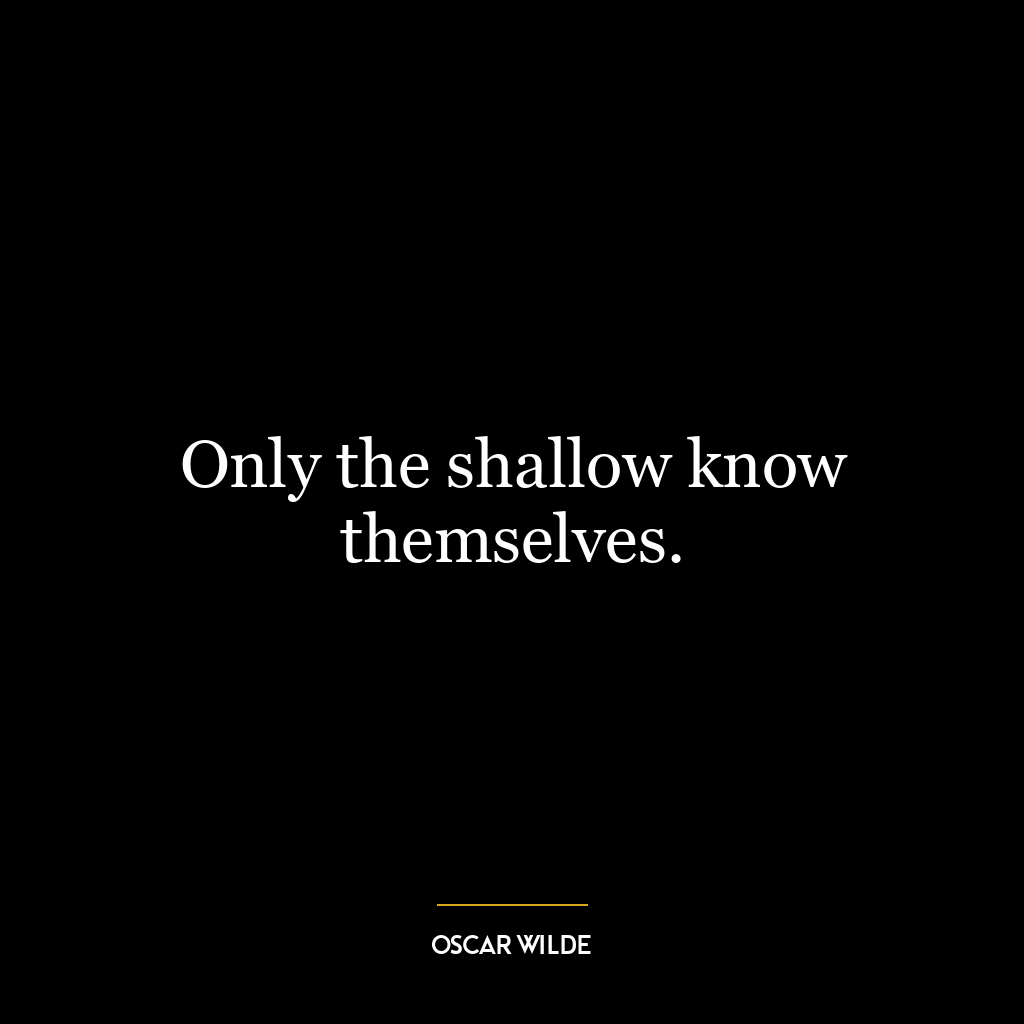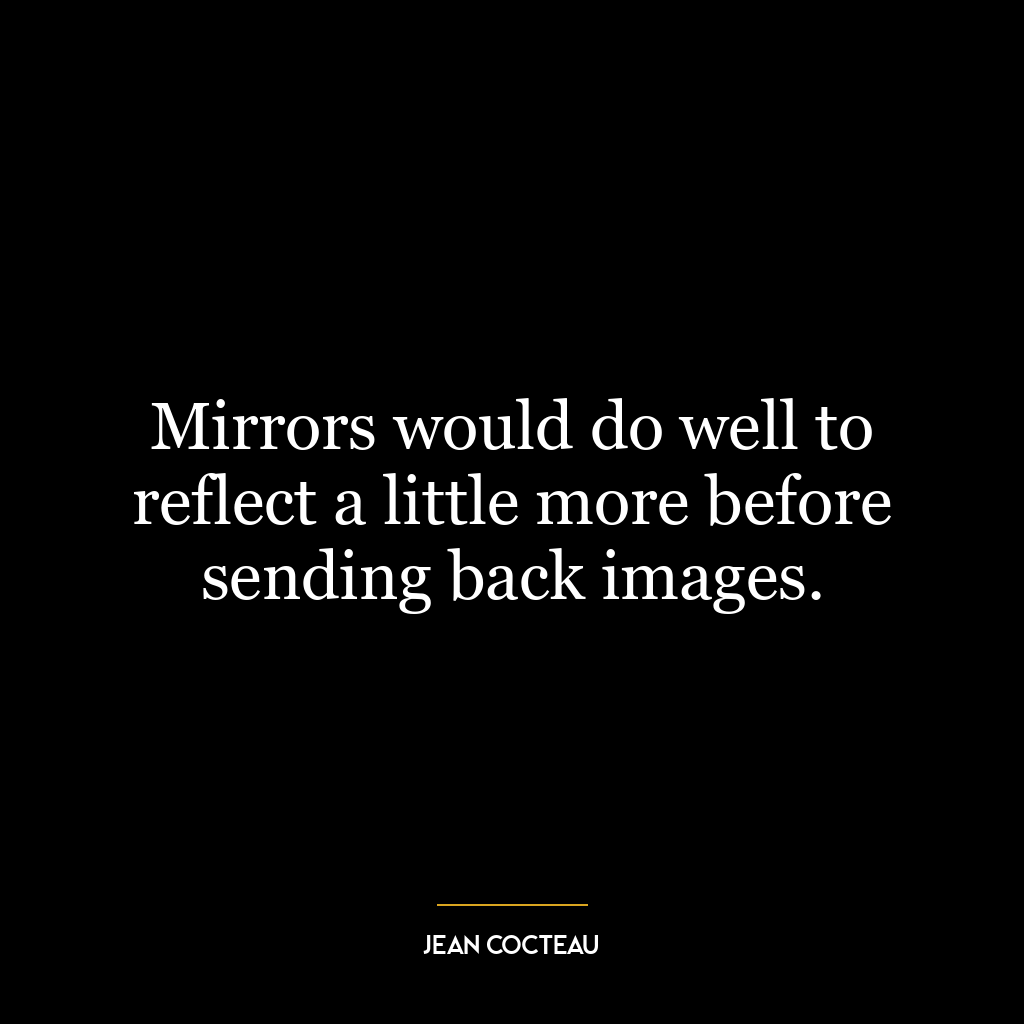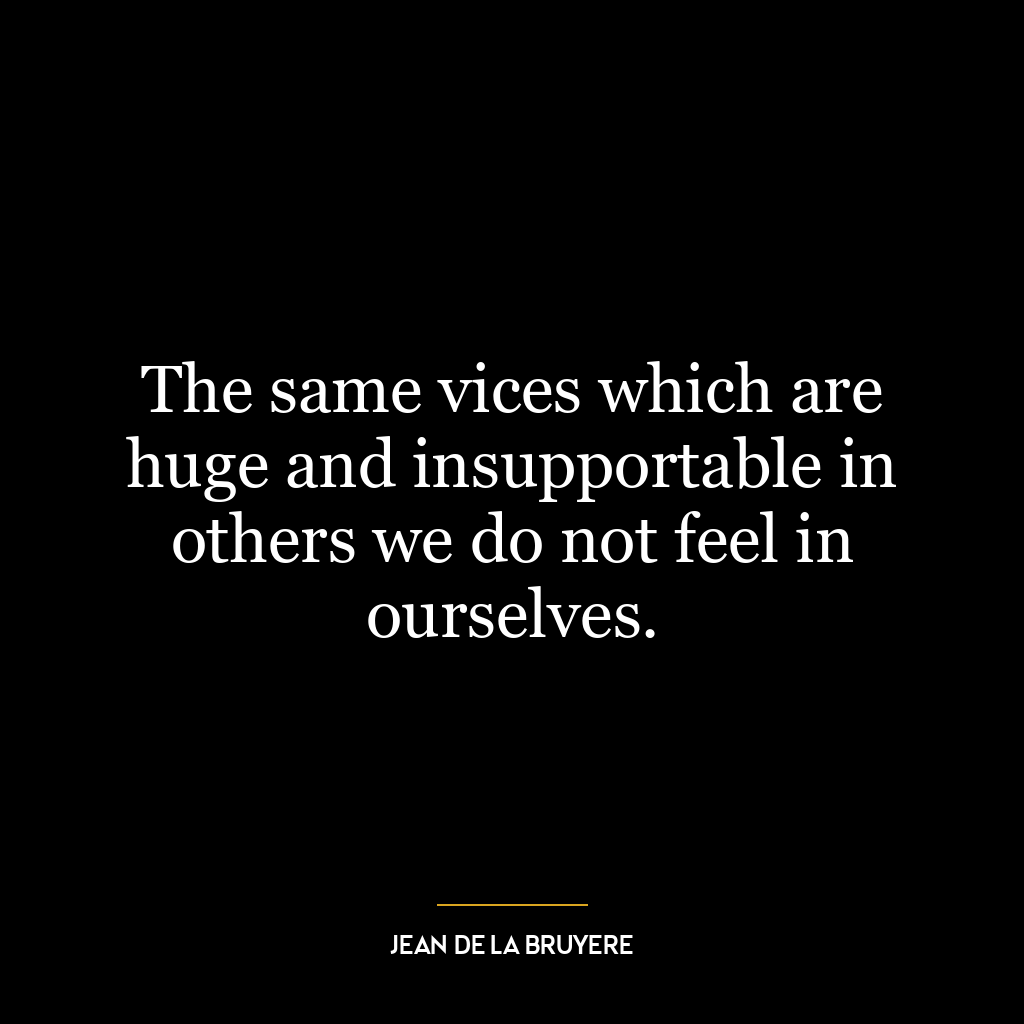Only the shallow know themselves.
Only the shallow know themselves” is a thought-provoking statement that, on the surface, may seem counterintuitive. It suggests that self-knowledge is not as deep or profound as we often believe it to be. Rather, it implies that only those who are superficial or lack depth have a complete understanding of themselves.
This idea hinges on the belief that human beings are complex, multi-faceted creatures with depths that are often hidden or unexplored. To claim to fully know oneself, then, is to deny this complexity. It is to assert that there is no more to learn, no more growth to be had, no more depths to plumb. This, the quote suggests, is a mark of shallowness.
In contrast, those who acknowledge their own complexity, who understand that they are always evolving and that there’s always more to learn about themselves, demonstrate a depth of character. They know that self-discovery is a lifelong journey, not a destination.
Applying this idea to today’s world, we might consider the culture of social media, where people often present a curated, superficial version of themselves. This quote could serve as a reminder that our online personas are just the tip of the iceberg of who we truly are. It could also be a critique of our culture’s obsession with self-definition and self-branding, suggesting that such practices limit our potential for growth and self-discovery.
In terms of personal development, this quote underscores the importance of remaining open to change and evolution. It suggests that the moment we think we’ve got ourselves all figured out is the moment we stop growing. It encourages us to embrace the mystery and complexity of our own selves, to continually seek to understand ourselves better, and to value the journey of self-discovery over the destination of self-knowledge.









